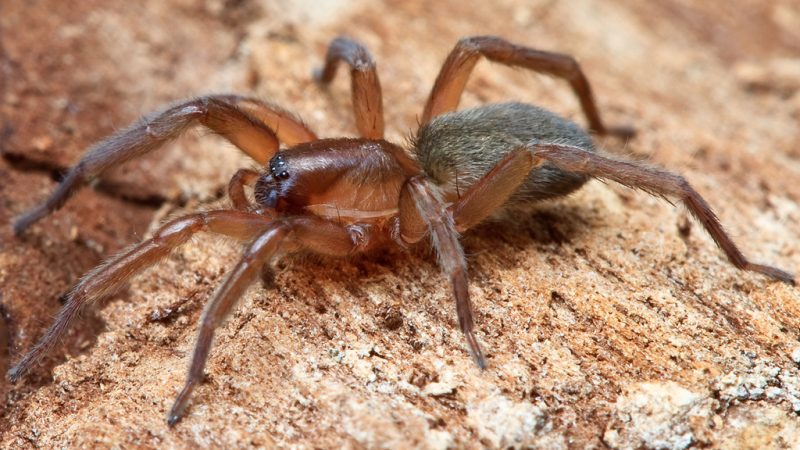Gardening is an art that involves not just planting and nurturing flowers and vegetables, but also understanding the ecosystem that thrives within it. Among the myriad of creatures that inhabit gardens, spiders often evoke mixed feelings. While many people harbour a fear of these eight-legged critters, some spiders, like the False Wolf Spider, are incredibly beneficial to gardens. This article delves into the surprising benefits of the False Wolf Spider and why you should embrace its presence in your outdoor space.
Understanding the False Wolf Spider
The False Wolf Spider (Rabidosa rabida) is a common sight in gardens and landscapes across North America. Often mistaken for the more aggressive wolf spider, this non-venomous creature can easily be identified by its long legs and distinct markings. Unlike true wolf spiders, False Wolf Spiders do not create webs to catch prey; instead, they are active hunters, which brings us to one of their most significant benefits.
False Wolf Spider: Natural Pest Control
One of the most compelling reasons to welcome False Wolf Spiders into your garden is their role as natural pest controllers. These spiders are voracious predators, primarily feeding on insects such as:
- Flies
- Crickets
- Grasshoppers
- Other garden pests
By keeping the population of these pests in check, False Wolf Spiders help maintain a balanced ecosystem in your garden. This natural pest control means you can reduce your reliance on chemical pesticides, which can be harmful to both the environment and beneficial insects.
False Wolf Spider: Non-Aggressive Behaviour
Unlike some other spider species, False Wolf Spiders are not aggressive towards humans. They are more likely to retreat than confront, making them safe to have around. This non-aggressive nature means you can coexist with them without fear, allowing you to enjoy your garden without the anxiety of dealing with dangerous spider bites.
False Wolf Spider Contributions to Soil Health
The presence of False Wolf Spiders in your garden can contribute to soil health in several ways. As they prey on insects, they help to maintain the balance of the ecosystem, preventing overpopulation of pests that can harm plants. Moreover, when these spiders die, their bodies decompose and enrich the soil with nutrients, promoting healthy plant growth.
Promoting Biodiversity in Your Garden
A thriving garden ecosystem relies on biodiversity, which enhances its resilience against diseases and pests. The presence of various species indicates a balanced environment that can support numerous plants and animals. By fostering a diverse array of creatures, you encourage a more robust ecosystem that benefits all inhabitants. This diversity not only ensures healthier plants but also creates a more enjoyable and interesting gardening experience.
Reducing Disease Spread Among Plants
Insects such as flies and mosquitoes can carry diseases that adversely affect plants. By preying on these harmful pests, certain garden spiders help to minimise the risk of disease spread. Their natural hunting behaviour contributes to a healthier environment, protecting both plants and humans. This role in pest control is crucial for maintaining the overall health of your garden, allowing your plants to thrive without the threat of disease.
Educational Opportunities for Garden Enthusiasts
Observing garden spiders can provide unique educational experiences for families and gardening enthusiasts alike. Learning about their behaviours, diets, and ecological roles enhances your understanding of nature. Teaching children to appreciate these creatures fosters curiosity and respect for wildlife, promoting a love for biodiversity. Engaging with the natural world through observation and education enriches your gardening journey.
Aesthetic Appeal of Garden Inhabitants
While many may not initially consider spiders as a garden highlight, they possess a certain charm that can add to your garden’s allure. Their intricate movements and diverse appearances can be fascinating to watch. Incorporating these creatures into your garden narrative invites visitors to appreciate the richness of life surrounding them. This unique aspect of nature can spark conversations and encourage a deeper connection with the environment.
Natural Fertilisation Through Predator Activity
The predatory behaviour of certain garden inhabitants plays a significant role in maintaining plant health. By regulating the populations of herbivorous insects that feed on your plants, these predators contribute to healthier plants that can better withstand stress. Healthier plants produce more organic matter, such as leaves and roots, which enriches the soil and promotes natural fertilisation. This cycle supports a vibrant and productive garden ecosystem.
Thriving in Diverse Garden Environments
Certain garden predators are incredibly adaptable, thriving in various environments, from urban settings to rural landscapes. Their ability to adjust to different conditions makes them valuable residents in diverse gardening contexts. This resilience ensures they can continue providing benefits regardless of changes in the garden ecosystem. By supporting these adaptable creatures, you contribute to a balanced and flourishing garden.
Conclusion
The False Wolf Spider may not be the first creature that comes to mind when thinking about beneficial garden inhabitants, but its role is undeniably crucial. From natural pest control to promoting biodiversity and soil health, these spiders contribute to a thriving garden ecosystem. By understanding and embracing the False Wolf Spider, you can cultivate a healthier, more balanced garden environment that benefits both plants and wildlife.
FAQs
1. Are False Wolf Spiders dangerous to humans?
No, False Wolf Spiders are non-venomous and not aggressive, making them safe to have in your garden.
2. How can I attract these spiders to my garden?
Create a diverse environment with plenty of hiding spots, such as rocks, logs, and dense vegetation.
3. Do these spiders build webs?
No, they are active hunters and do not spin webs to catch their prey.
4. Can these spiders help with pest control?
Yes, they effectively prey on many garden pests, helping to keep their populations under control.
5. How can I coexist with these spiders in my garden?
Simply allow them to roam freely, as they are beneficial and pose no threat to you or your plants.
Also read: Kogan Travel: 12 Budget-Friendly Tips for Your Next Adventure








